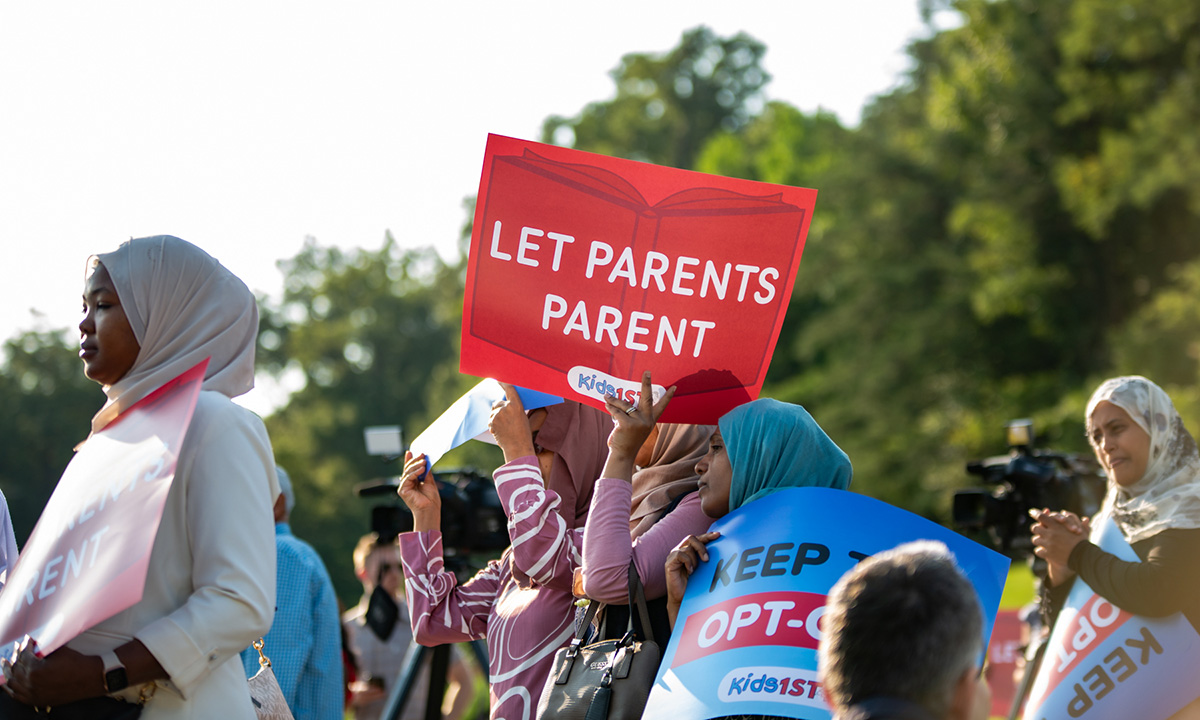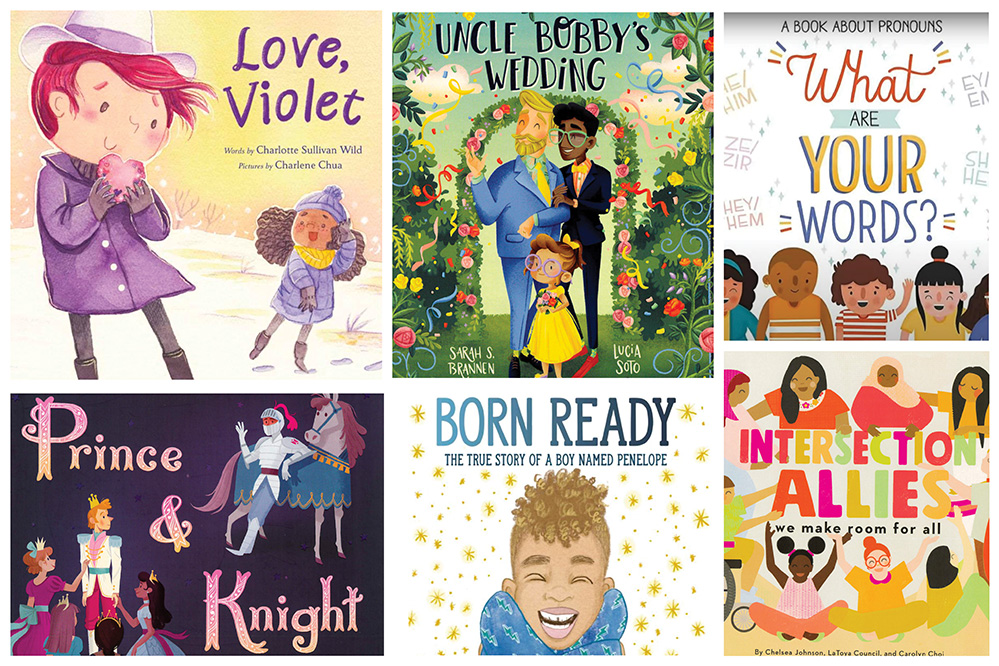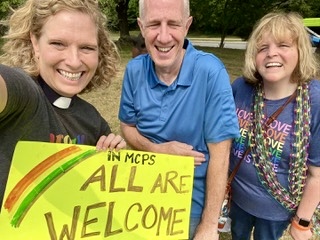Supreme Court Weighs Whether Parents Have Right to Opt Out of LGBTQ Lessons
The Montgomery County, Maryland, case reflects the tension between inclusion and religious freedom in one of the nation’s largest school districts.

Get stories like this delivered straight to your inbox. Sign up for The 74 Newsletter
The U.S. Supreme Court on Tuesday will consider whether one of the nation’s largest school districts violated parents’ First Amendment right to religious freedom when it stopped allowing them to opt their children out of LGBTQ-themed lessons.
A group of parents sued the Montgomery County Public Schools in Maryland, arguing that requiring children to sit through storybook readings on topics such as a Pride parade and a girl giving a Valentine to another girl offends their religious beliefs.
“We were forced to choose between God and education,” said Billy Moges, a Christian mother of three and a board member for Kids First, an advocacy group that formed to oppose the district’s move. She pulled her children out of the school system when officials ended the opt-out policy and has since started a private Christian school, His Academy, that meets in a Silver Spring church.
“We’re not asking for any special treatment,” she said. ‘We’re asking for our rights to be restored.”

Regardless of who wins, the case will head back to the district court for further action.
The appeal centers on parents’ request to reinstate the opt-out policy until the district court can rule on whether the district violated their rights. But the court’s conservative majority may also use the oral arguments to address the underlying facts, said Joshua Dunn, executive director of the Institute of American Civics at the University of Tennessee, Knoxville.
“The school board didn’t relent, and then compelled students to sit through these books being read,” he said. “I just think that for some of the justices on the court, that’s going to strike them as extraordinarily wrong-headed.”
District officials say the books, intended for pre-K through third grade, were never intended to push views about sex and gender. The opt outs, they argue, became increasingly disruptive and contributed to absenteeism because some parents let their children skip the whole day if a lesson included one of the books.
Opt-outs “stigmatized LGBTQ students and students who have LGBTQ families,” said Aditi Fruitwala, a staff attorney with the American Civil Liberties Union, which supports the district. Reinstating the policy, she said, would “undermine the entire purpose of a public education system, which is to create good citizens who can thrive in a society with people from a variety of backgrounds, faiths and cultures.”
The case, Mahmoud v. Taylor, illustrates the growing tension between inclusion and religious freedom. That’s likely the reason the conservative-learning court agreed to hear the appeal, Fruitwala said. The parents who sued — Muslim, Catholic and Orthodox Christian — also have the Trump administration on their side: Solicitor General John Sauer will participate in the oral arguments. In a brief, the Department of Justice said the board’s policy forces parents to be in “dereliction of their religious duties” by sending their children to public school. Twenty-six Republican-led states and 66 members of Congress also support the parents.
Religiously diverse
Over the past few years, confrontations over these issues have escalated in districts across the country. In February, parents in the Penfield, New York, district, near Rochester, objected to the district’s use of The Rainbow Parade, a picture book about a young girl and her two mothers attending a Pride parade.
Nationally, the public leans in favor of schools allowing parents to opt their children out of lessons about sexual orientation and gender identity. Fifty-four percent agreed with that view in a Pew Research poll last year, but the partisan divide was stark: Support for opt outs was 79% among Republicans, compared with 32% among Democrats.
Despite clashes over such materials from California to Michigan, both sides of the conflict agree that Montgomery County offers an especially apt setting for the debate. The county is one of the most religiously diverse in the nation, according to the Public Religion Research Institute.
Will Haun, senior counsel at Becket, a law firm that focuses on religious liberty and represents the parents, said it’s “astonishing,” that such a district would abandon the longstanding practice of accommodating parents’ opt-out requests.
Fruitwala said the district’s rich religious and ethnic diversity is precisely why the books belong in the curriculum. District leaders, she said, have an “opportunity to incorporate books from a wide variety of cultures and perspectives and backgrounds that reflect the families in the school district.”
The 160,000-student district’s effort to bring more diversity to its reading program began in 2022-23, when the school board voted to add six books featuring LGBTQ characters. Officials said they chose the titles for the same reasons they would add any storybooks to the curriculum — to teach sentence structure, word choice and style.
In a brief to the U.S. Court of Appeals for the Fourth Circuit, the National Education Association and its Maryland and Montgomery County affiliates highlighted comments from teachers that demonstrated students’ eager response to the books.
A veteran second grade teacher relayed what happened when she read My Rainbow, a picture book about a mother who makes a rainbow-colored wig for her transgender daughter. “Upon hearing the words, ‘I’m a transgender girl,’ one of the children in my class called out, ‘That’s like my sister!’ This child felt seen,” the teacher said, according to the brief.
Ignoring LGBTQ families, district leaders say, puts schools at risk of violating state laws that prohibit discrimination on the basis of sexual orientation or gender identity.
The Fourth Circuit ruled that refusing to allow children to opt out of the readings put no burden on religious parents. That’s when the families appealed to the Supreme Court.
They argue that since the district permits families to opt their children out of sex education, under a state law, that choice should extend to books that represent LGBTQ themes in other subjects.
“All the school board had to do,” Haun said, “was simply recharacterize sexuality and gender instruction as English language arts and they get out of a long-standing national consensus that allows parents to opt their children out of that kind of instruction.”

Last fall, the district removed two of the books in question — My Rainbow and Pride Puppy!, a rhyming alphabet book about a puppy that runs off during a Pride parade. But Rev. Rachel Cornwell, a Methodist minister who has two students in Montgomery County schools, said she wouldn’t be surprised if the district was forced to remove all of the storybooks.
She wishes the parents would suggest different books rather than leave the district.
“I think the vast majority of people in Montgomery County support the inclusion of these books into the curriculum,” she said. “These are not books about sex. They are books about people’s lives and about the diversity of our community.”
As the mother of a transgender son, she said she and other LGBTQ families want their children to feel like they belong.
“We’re not trying to indoctrinate anybody or say this is right or wrong,” she said. “That’s for you to have a conversation about with your kid at home.”
Get stories like these delivered straight to your inbox. Sign up for The 74 Newsletter

;)
